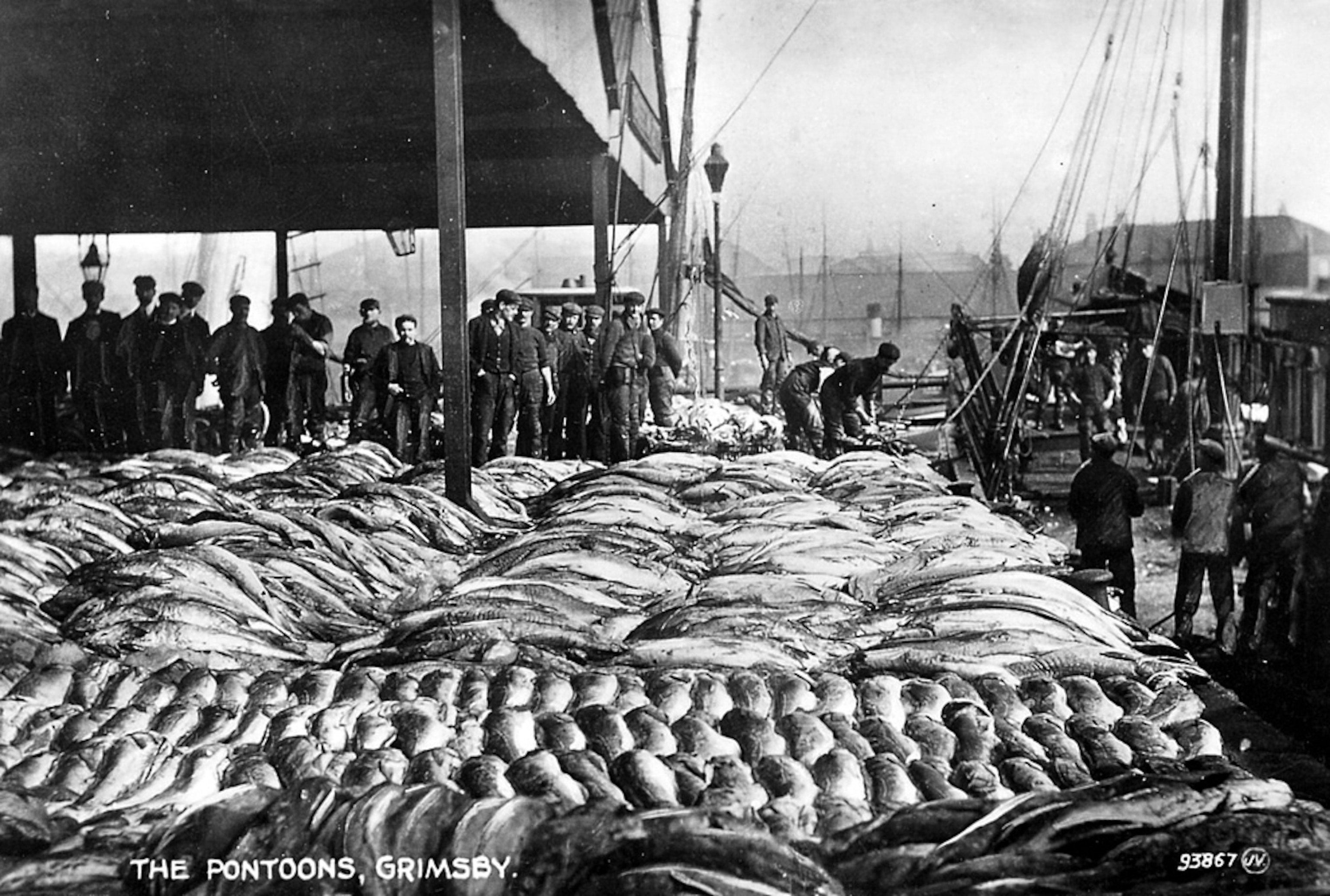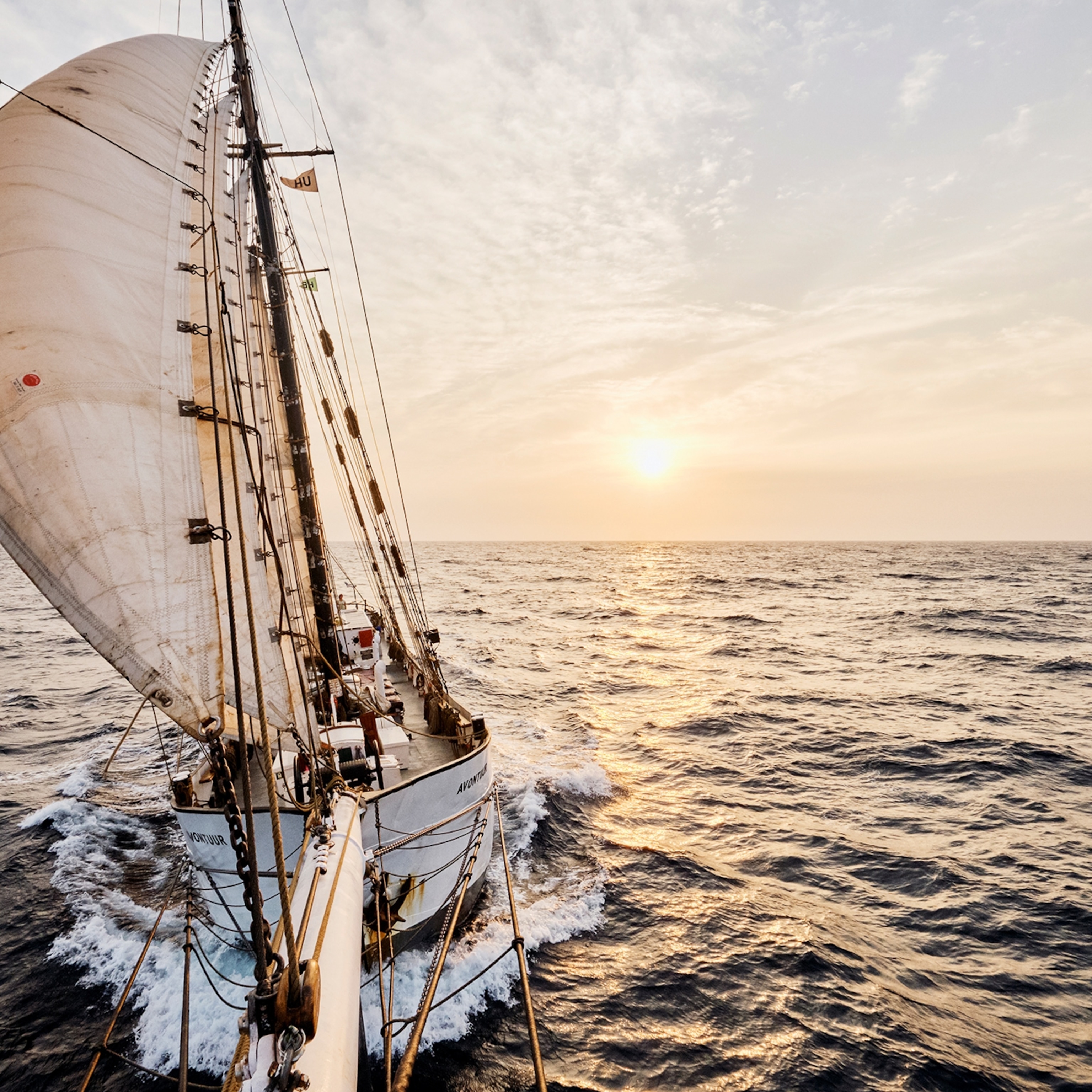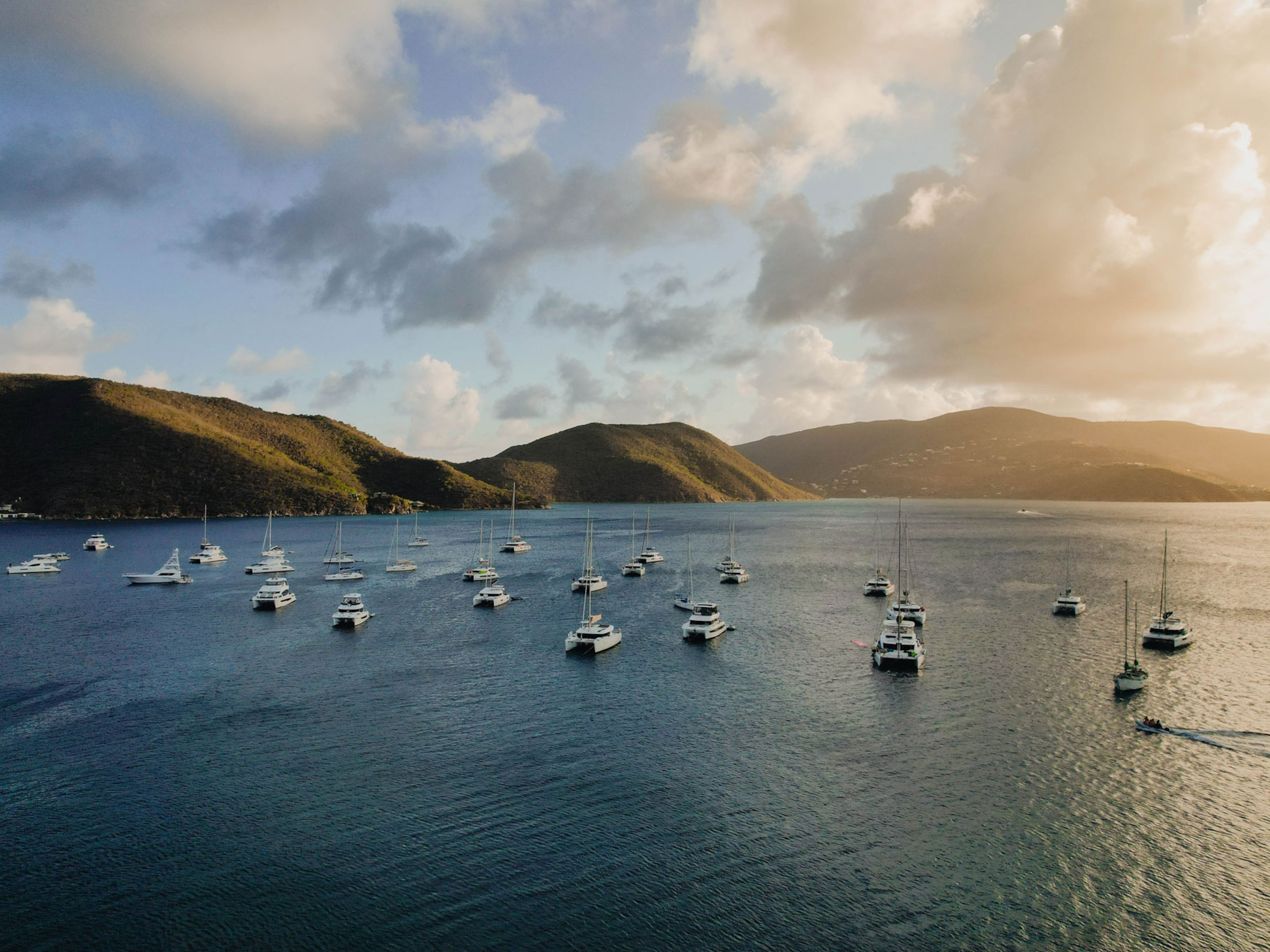
Seafloor Fish Nearly Wiped Out off U.K.
Victorian sailing ships caught more than today's high-tech trawlers, study says.
Over the last century or so, trawlers have gotten more powerful engines, fish-detecting radar, lighter nets, and vast onboard freezers.
What the fleets might really need, though, is a time machine.
After all, bottom-fishing fleets in United Kingdom waters today have to work 17 times harder to catch the same amount of fish as their sail-powered Victorian counterparts did, according to a new study.
To address innovations have made fishing more efficient over the years, the study authors devised a new measure: units of "fishing power."
After analyzing historic catch records from England and Wales, the researchers conclude that the amount of fish caught per unit of fishing power has fallen by 94 percent since 1889.
That doesn't necessarily mean the number of fish along the seafloor, such as cod and haddock, dropped by 94 percent. But it's probably "a very good approximation," lead study author Ruth Thurstan, a graduate student at the University of York in England, said via email.
The decrease in catches is "truly shocking," given how much more efficient fleets have become, Thurstan said in a telephone interview.
The statistics sting all the more because they involve not just one species but an entire section of the marine ecosystem, she added. The U.K. seafloor could be undergoing a wholesale shift as a result, with exploding populations of baitfish and crustaceans, for example, taking the places of their former predators.
For better or worse, the Britain isn't alone in the fisheries decline.
The fisheries is "very much in line with what studies have shown in other ecosystems," said Andrew Rosenberg, a University of New Hampshire marine-sciences professor who wasn't involved in the new study.
"We've seen the same thing in the western Atlantic, in the North Sea, and in the Baltic," said Rosenberg, a former U.S. National Oceanic and Atmospheric Administration (NOAA) fisheries manager. "In the Mediterranean you probably have even greater declines."
(Related: "Overfishing is Emptying World's Rivers, Lakes, Experts Warn.")
Fishing Better, Catching Fewer
Bottom-dwelling fish landings at U.K. ports rose from 1889—the first year reliable records were kept—through the mid-20th century as the fleet grew larger and technology made fishing much more efficient, according to the new study, published May 4 in the journal Nature Communications.
Trawlers, which drag bag-shaped nets along the seafloor, began trading sails for steam engines in the 1880s, allowing the fleet to fish more distant, deeper waters for longer periods. Net technologies further improved catch rates, and refrigeration stretched the fishing boats' capabilities even further.
But since World War II, despite ever increasing investment in a more efficient fleet, trawler catches in U.K. waters have been dropping, presumably due to overfishing.
For example, today's trawling fleet off the U.K. annually catches about half what its sail-powered predecessor did in 1889, the study says—and less than a quarter of the peak annual catch in 1938.
(See pictures illustrating the current global fish crisis.)
Fishing Fears Nothing New
Even in 1889 trawl fishing had already been practiced for centuries off Britain. "Fish stocks around the U.K. were already in decline, and it was being noticed at the time," study leader Thurstan said.
In fact, the records used in the new study were begun as a result of two Royal Commissions of Inquiry to address Victorian fishers' concerns over shrinking stocks.
The study found that the first steep declines in U.K. trawler catches began in the 1960s. That's a full 20 years before the formal enactment of the European Union's Common Fisheries Policy (CFP), which fishers often blamed for the current state of European fisheries.
But the earlier date for the first steep declines doesn't mean the CFP is completely off the hook.
"The stocks have continued to decline throughout the [time of the] CFP, so it hasn't allowed the recovery of many of the stocks," Thurstan said.
(Also see: "African Bush-Meat Trade Linked to EU Overfishing.")
Can Seafloor Fishery Be Fixed?
Gavin Gibbons is a spokesperson for the National Fisheries Institute, which represents the U.S. fish and seafood industry. Fishery collapses, he says, aren't due to increases in fleet efficiency but rather to poor management.
What's needed, Gibbons said, is proper direction, based on better knowledge of stock status, reproduction, and sustainable catch levels. With that in place, he said, fish generally can be harvested sustainably.
"Understanding the seafood science behind safe harvest levels and following them under strong unified management schemes has been a recipe for success that NOAA has employed for years [in the U.S.]," he added.
The University of New Hampshire's Rosenberg is also hopeful for solutions to overfishing's effects.
"We need to accept that we've fundamentally altered these ecosystems, but that doesn't mean that everything is irreversible," he said.
For example, bottom-dwelling haddock on North America's rich Georges Bank were decimated to the point of collapse in the early 1990s, Rosenberg said. Though abundance remains far below historic levels, stocks increased tenfold from 1995 to 2005, due to restrictive guidelines, he said.
"It's a challenge," he said. "But I think it's sometimes possible to rebuild if you can address the problems of overfishing."






